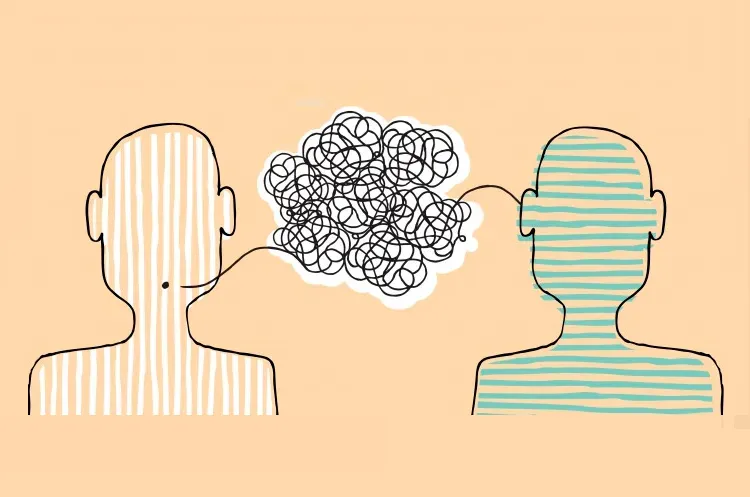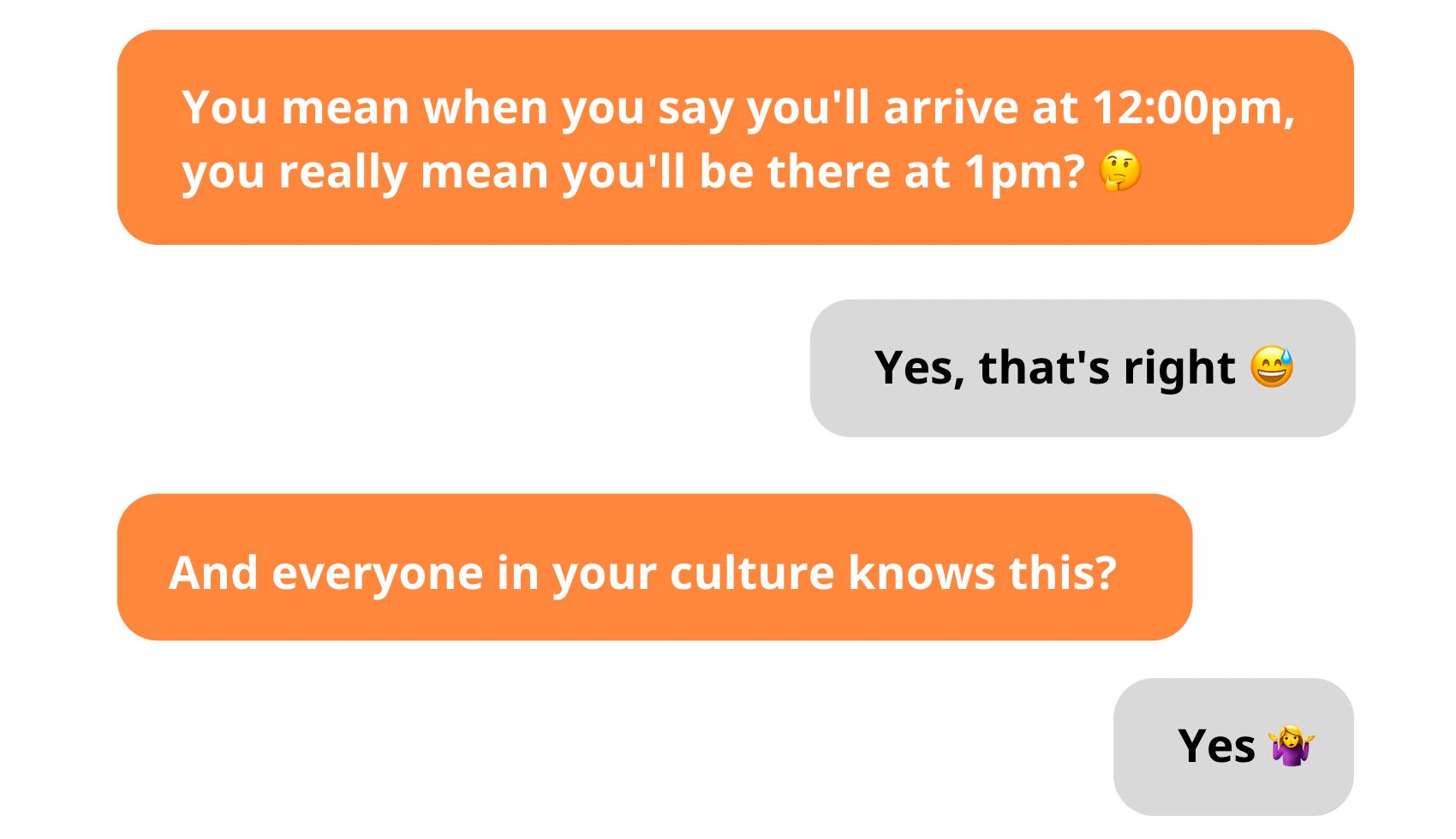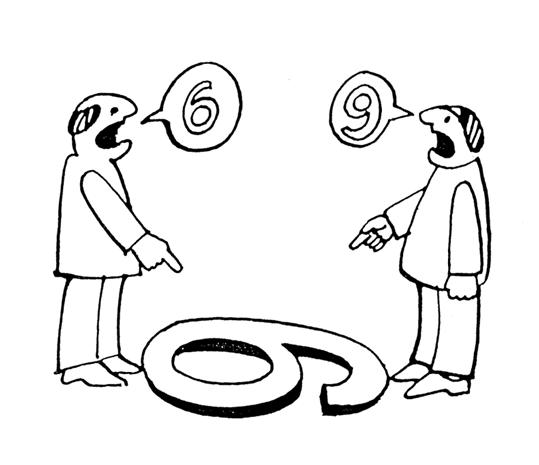A good language exchange can change your life. You can open a new world of music, movies, travel, cuisine, relationships and more. Though like anything valuable, it's not easy.
In this article I'll cover 5 common language exchange mistakes and how to fix them.
Read on or jump to the section you're most interested in.
What is language exchange?
Mistake #1: Using the wrong platform to find a language partner
Mistake #2: Misunderstandings
Mistake #3: Balancing talk-time
Mistake #4: Not having the right tools
Mistake #5: Relying 100% on language exchange
What is language exchange?

Simply, you teach your native language to your exchange partner, and your partner teaches you their native language. This can be done in person, through video or audio or plain old text.
This is easier said than done. There are many cultural, practical and motivational challenges to setting up a good language exchange. Luckily, it's well worth the effort.
Benefits
Language exchange is practical and effective. Rather than practicing with textbooks, and classroom materials, you get real-life language practice. You get all the messy, authentic practice that you need to learn a language well.
Language exchange is free. Time is your only expense. This is why it's so important to understand how to setup a language exchange correctly, so you get the most out of your time spent.
Language exchange is fun. As you learn more about your language partner, their culture, and their language, you'll find yourself looking forward to language study.
Learning language socially opens up new opportunities. It's common for a language exchange to branch off into new relationships, travel, and even career changes.
I've lived the benefits of language exchange. I've operated 2 language cafes in a foreign country for the last 5 years. I've also co-founded one of the largest language exchange apps in the world.
During this time, I've seen language exchanges develop into marriages. I've witnessed YouTubers and TV personalities shoot to stardom in foreign countries. All of whom had their humble beginnings in language exchange.
These life-changing benefits don't always come easy.
If you've ever tried language exchange before, you may have spent your precious time just socializing in English. Or maybe the 'language exchange' felt more like a date. Perhaps you just had trouble finding a language partner with similar interests or goals.
That brings us to the first mistake that most people make with language exchange.
Mistake #1: Looking for language partner in the wrong place

There are plenty of resources to help you find a language partner. The mistake to avoid is looking in the wrong place for a language partner.
Different crowds hang out at a cafe, pub or nightclub. Language exchange is no different. You can expect a different crowd in each of my recommended channels below.
First, lets start online:
ONLINE
Hilokal - An app focused on spoken language exchange

This is my pick for finding language partners to practice speaking with. There are 1000s of live audio chatrooms filtered by target language, native language and language level.
If you're shy and not ready to speak, you can remain a listener. When you're ready to speak with others, you can request the host of the audio chatroom permission to speak. Then your microphone is connected, and you can start talking.
The crowd in Hilokal is very education focused and they love cultural stuff. You'll tend to find learners interested in music, dramas and movies. Hilokal is the introvert's extroverted platform.
Slowly - An app that encourages deep, text based language exchange

Slowly has a unique language exchange concept. The app simulates language exchange in the old days of snail mail.
Messages on Slowly are received hours or even days after they are sent. The time it takes messages to be delivered depends on distance. For example if you send a message from Seoul to Vancouver it will take longer than sending a message from Seoul to Tokyo.
This leads to an interesting dynamic on the app. There is a strong community of people who appreciate long-form messaging. I wouldn't recommend it for speaking, but for deeper, text based connections, it's a win.
You can find more language learning apps here.
OFFLINE
Meetup - group based offline language exchange.

Meetup.com is a great option for finding language partners that you can meet in person. The site is a massive catalogue of local communities that schedule local events. It just so happens that a huge portion of these events are language exchange meet ups.
Before attending an event, I recommend messaging the host because events can sometimes remain listed, but inactive. You can expect to pay a small entrance fee of $5 to $10 at a meetup event, or at least pay for a drink.
The crowd you'll find on meetup ranges from travellers, to community enthusiasts. The trouble with meetup are those few attendees that should really be in my next recommendation...
Tinder – Dating under the pretence of language exchange

Are you serious? Tinder?
Yup. If we're being honest with ourselves, dating is often a massive motivator for language exchange. Not always, but a good portion of people looking for language exchange like to feel like they are developing their skills while leaving the door open for that special someone.
Tinder allows you to quickly search for partners in your area. As long as you are upfront with what you're looking for in your profile, Tinder can be a solid platform to find language partners who could end up being more than just language partners.
You're going to find a younger, more open-minded crowd on Tinder. Tinder is also notorious for its hookup culture. You've been warned.
Mistake #2: Not knowing how to deal with misunderstandings

Now that you have found your language partner, what's next? It's time to misunderstand one another.
Language exchange can be thought of as a never ending series of misunderstandings. You'll misunderstand your partners pronunciation, and they will misunderstand your intonation. The list of misunderstandings goes on and on – forever.
The key is to prevent the bigger, uglier misunderstandings that will end the language exchange all together. It's time to work on your soft skills.
Set clear expectations & goals with yourself and your partner
You should clearly understand what you want to get out of your language exchange, and then be upfront with your language partner.
Are you preparing for a speaking test in August? Great. Let your language partner know. Are you pretty casual about language learning, and just want to hang out? Great. Let your language partner know.
If you're like most people, you probably just have a vague idea that language exchange may be a good thing to do to learn a language. Instead, try being more specific and you'll likely get better results.
Here's an example list of specific reasons for doing language exchange:
- Practice for an upcoming test.
- Learn cultural nuances of your target language.
- Moved to a foreign country and need to make friends.
- Reach intermediate (B1) speaking fluency.
- Become more social.
- Work on pronunciation mistakes.
Being upfront with your self and your language partner is the best thing you can do to prevent relationship ending misunderstandings.
Establish a regular time to meet

In language learning, it's essential to practice consistently. Setting a fixed date with your partner is a great way to show your commitment.
Conversely, messaging your partner only when you need help will make your partner feel used.
Think of your partner as your friend who speaks your target language and NOT your target language speaking friend. The difference is subtle, but it's a big one.
Cultural misunderstandings

Cultural misunderstandings are unavoidable. You will make mistakes that you can boil down to simple cultural misunderstandings. Don't sweat it.
Every culture has a different relationship to time, gifts, flirting, manners and just about everything and anything else. Discovering these cultural differences, discussing them, laughing about them and moving on is one of the best parts of language exchange.
Mistake #3: Not saying upfront how you'll spend time speaking with each other

Balancing the amount of time you both speak your target languages can be a sensitive topic.
As a native English speaker, you can easily charge $20 per hour to just talk with an English learner. No teaching, just talking. It's important that you both feel your time spent teaching your language is worth while.
It's very common for the more elementary partner to end up speaking more of their own native language. This is especially true for native English speakers because the whole world wants to learn English and many people already speak conversational English.
As a result, English speakers often give up on language exchange. We cry out, "We always end up speaking English!" This is a huge pitfall for native English speakers trying to language exchange.
Set expectations about talk-time up front.
It's important to establish the ground rules first. Tell your partner that you'd like to spend half of your time together speaking your target language, and the other half speaking theirs. This way you'll both know if you're breaking the rules or not.
Once you've both agreed on how you will spend your time together, it's on you to make sure it happens. Even when you really can't express yourself well in your target language, and you just want to explain yourself in English, you've got to resist the urge to speak in English and soldier on in your target language.
In another scenario, when your partner speaks in English when it's your turn to speak your target language, it's your responsibility to keep your partner honest. Otherwise, like a river flowing into the sea, the conversation always ends up going towards English.
Use your charisma, humour, and these phrases to keep the conversation in your target language.
Mistake #4: Not learning essential phrases for language exchange

Here's a list of expressions you should learn in any language. They are super valuable because they help you keep the conversation in the target language.
What does (foreign word) mean in English?
Rather than ask in English, "what does (foreign word) mean in English?" Learn it in your target language. You can then point to what you're talking about.
How can I say (English word) in (Target Language)
This is similar with the previous phrase, but just as useful. You can use it to build your vocabulary.
Sorry, I don't know
Rather than looking directly back at your partner with a blank look and have them guess on what they need to say next, just tell them, "Sorry, I don't know." Then they can try again.
Please tell me one more time.
Use this expression in your target language and soak up all that listening practice. Your partner will rephrase what they are trying to explain more slowly, with easier language (and usually a lot louder for some reason).
Please speak slowly
When your partner speaks too quickly, we often throw up our arms in frustration and think to ourselves, You're making me feel dumb! Instead, you can ask them "please speak slowly", which will bring the conversation back into your comprehension zone.
Please tell me in (Target language)
This will keep the conversation from inevitably slipping back into English. Your partner may end up telling you all the wonderful things about your target language and how to use it. But you're here to practice speaking it, remember?
A simple reminder spoken in your target language, "Please tell me in (target language)", will snap the conversation back on track.
Mistake #5: Relying exclusively on language exchange

Another mistake first time language exchangers make is relying only on language exchange. That means they don't do any sort of study out side the language exchange. Then, they complain that language exchange doesn't work for them.
Apply what you're learning
Unless you're unusually gifted, or already advanced, we need to study. We need to put in effort with YouTube videos, textbooks, lessons, and flashcards.
When you get to the rhythm where you study, and think ahead when you can use what you've learned with your language partner, then you're on the right track.
Hilokal has tools to support learners during language exchange. You can tap words and expressions that your partner uses and translate them now, or save them for later.
Review what you talked about
This is a courtesy to your language partner. Everyone can understand when you've got to ask, "how do you say that word again?". But there comes a point where it's similar to, "what's your name again?". At some point it just seems like you're disinterested in your language partner.
Reviewing what you've talked about with your language partner is a great way to show you're interested in them and it really works to advance your skills.
Summary

Language exchange truly is something that can change your life forever. Who will you meet? How will what you learn change how you think or who you are? Will you move? Change your career?
At the very least, language exchange is free access to fun, authentic language practice.
Luckily for us, in this 21st Century, there are tonnes of resources online, and offline, to help us get started on language exchange.
This is easier said than done, but if you follow the tips in this guide, you'll be well on your way to a fruitful language exchange.
Make sure to choose carefully where you look for language exchange, just like you choose where to spend your time with friends.
Next, it's up to you to develop your soft skills to manage your new language exchange relationship. That involves being upfront with your goals, and methods for language exchange.
Then, learn key phrases that will be invaluable for you to keep the language exchange going, in your target language.
Finally, don't rely only on language exchange - you've still got to study and review.



